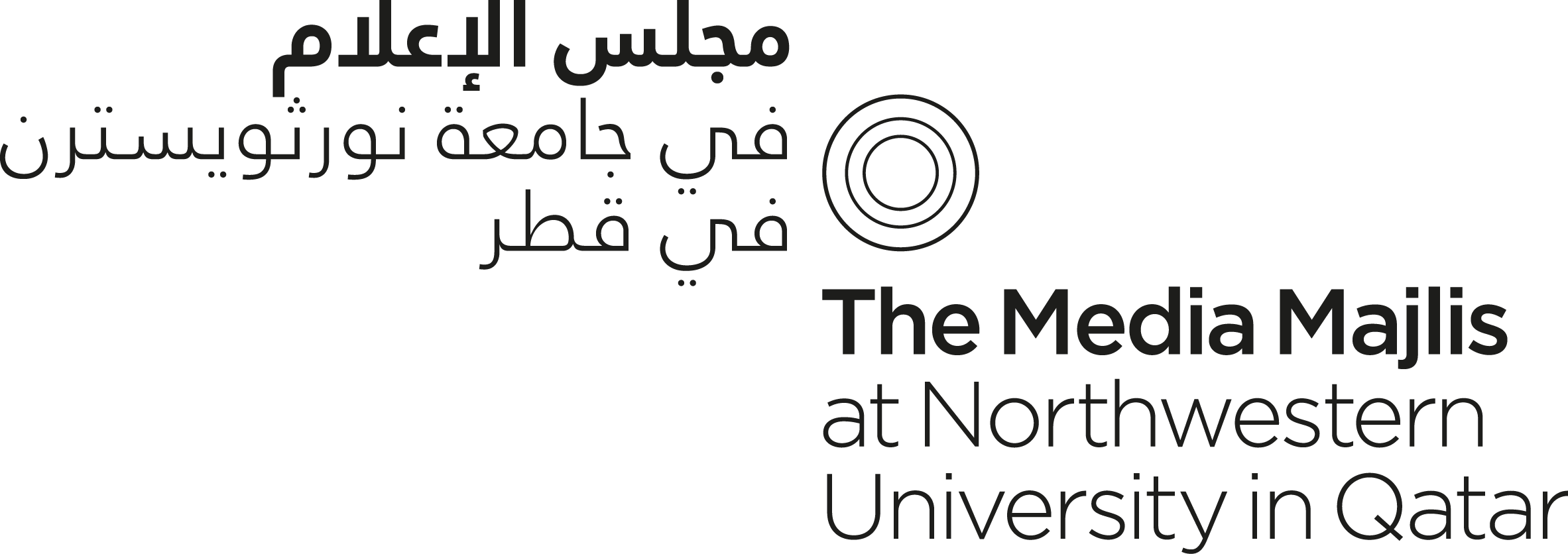
A video recording of this program is now available on the Explore Content section of this website.
How do you distribute films without cinemas? What is the danger of being limited to the festival circuit? What can film festivals offer beyond distribution? Who censors? How do you secure a market for your film? How do you get distributors on board? And when is the right time to do this?
These are by no means clear-cut and transparent questions—even to members of the film industry.
Join Arab film distributor Irit Neidhardt in discussion with a panel of creatives and practitioners as they try to shed light on the topics from multiple perspectives, including those of a Qatari filmmaker, film festival director, and international filmmaker. This discussion will include questions from the audience, and has simultaneous translation.
-
Venue accessibility
-
Simultaneous translation
Simultaneous translation (Arabic/English) is provided for all programs.
-
Wheelchair accessibility
The Projection Theatre is fully wheelchair accessible and features multiple wheelchair spaces with unobstructed views of the stage and screen.
-
Sign Language interpretation
Sign Language interpretation (ASL and ArSL) may be requested for talks, discussions, lectures and tours. Please contact the museum well in advance of the program to discuss this service. You are welcome to bring an interpreter with you—please let us know ahead of time and we will ensure that appropriate seating is reserved. A program ticket does not need to be purchased for an interpreter providing prior notification of their attendance at a specific program is provided to the museum.
-
Wifi
Free wifi access is available in the building. On your mobile device, with wifi switched on, select Guest-NUQ-Majlis from the available services and accept the terms of service to connect.
-
-
Program credits
Irit Neidhardt
Irit Neidhardt (moderator) is the founder of mec film, an international sales and distribution company dedicated to films exclusively from the Middle East where she works with the likes of Syrian director Mohammad Malas. She is a film producer having worked on critically acclaimed films including The One Man Village (2008) alongside Simon el-Habre, and Port of Memory (2009) alongside Kamal Aljafari. She is also a curator of film programs and commonly hosts lectures and workshops on topics such as images of the Middle East, and funding for Arab producers.
Eki Rrahmani
Hafiz Ali Abdulla
Hafiz Ali Abdulla is a Qatari film producer and director who has worked with the likes of Universal Studios, Al Jazeera Children, Qatar TV, and Qatar Foundation. His films include The Oryx Return (2007) which won best documentary at the Arab Radio and TV Festival in Tunisia, and Cab Driver (2005), which screened at film festivals worldwide. He is currently the director of Msheireb Museums, and is on the Board of Directors of the Arab Film Institute.
Deana Nassar
Deana Nassar serves as the Artistic Director of the Arab Film Festival, which is the largest and longest-running independent Arab film festival in the United States. Previously, she was the Hollywood Liaison for the Muslim Public Affairs Council where she engaged with decision makers in the entertainment industry to promote and foster more accurate representations of Arabs and Muslims on-screen. Nassar is also an actress and has appeared in films including Grey Matter (2017) and Unfair & Ugly (2018).
